2013 Shortlist for the Golden Baobab Prize for Picture Books
The Princess with a Golden Voice by Philip Begho (Nigeria)
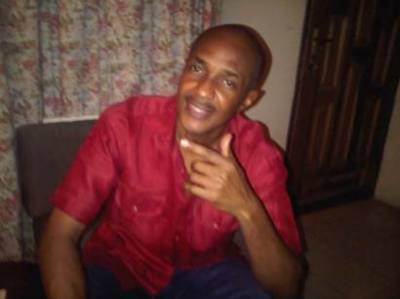
But the great head just swayed and swayed, and then the eyes of the beast closed. The monster was enchanted by the song! Quietly, it laid its huge head down on the ground. Without stopping her song, Ese snatched a huge sword from a guard. With her two hands, she swung it at the snake. And cut off its head!
Philip Begho is an award-winning author who has published over a hundred books, including the critically acclaimed Jelly Baby (a novel about boy soldiers), Songbird (a young adults novel about career choice), and the blockbuster Penny for an Orphan. Philip appeared twice on the longlist for his stories, The Princess with a Golden Voice and The Two-Headed Monster. However, it was The Princess with a Golden Voice that made it onto the 2013 shortlist.
"How exciting to make the 2013 shortlist for the Golden Baobab Prize for Picture Books!” he said. “The news came as I was pondering where the greatest stories lurked. In films? On the stage? In real life? In bestselling novels? No, they are to be found in the best children's stories. For no story is as timeless, as universal, as revealing or as helpful as the best of the world's children's stories.”
The Little Hippo by Liza Esterhuyse (South Africa)
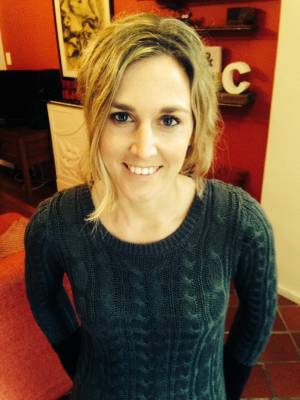
“But how amazing” The Little Hippo thought, “that although we are all so very different we can still work together to keep each other safe. We can be a part of the same herd, even though we don’t look the same. And so the Little Hippo said goodbye to his new little friend (who was still very tired after her swim) and happily and SLOWLY plodded his way back to his pond and pod.
Liza Esterhuyse is a qualified occupational therapist with a Masters Degree in Early Childhood Intervention who loves children’s books.
“Gloria Steinem said “without leaps of imagination or dreaming, we lose the excitement of possibilities. Dreaming, after all is a form of planning.” Entering this competition and being shortlisted encourages me to keep dreaming of the possibility of reaching children through the magic of books and the excitement of writing. What a dream come true to be able to contribute to the wonders of the imagination in such a way!”
Grandma Mimo's Breakfast by Carol Gachiengo (Kenya)
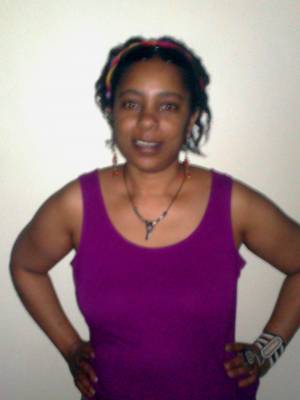
“Sweet beetles!” Grandma Mimo exclaimed, shaking her head. “Why won’t my red hen come out of the tree? Why won’t my white hen come out from under the store house? Where is my black hen hiding? Why won’t the goat give milk? I’m really very hungry and I need to have my breakfast. Her stomach agreed by grumbling and rumbling so loudly that it scared her shaggy cat. The cat gave a loud meow and ran under the bed.
Carol lives in Nairobi, Kenya, and works as a journalist and lawyer. Despite her busy schedule, she wrote a story, Grandma Mimo’s Breakfast, for the 2013 Golden Baobab Prizes.
“The news that I was shortlisted for the Golden Baobab Award absolutely made my day! I’m honoured to be part of a movement to create more beautiful African stories that our children can relate to.”
2013 Shortlist for the Golden Baobab Prize for Early Chapter Books
Seven by Sabina Mutangadura (Zimbabwe)
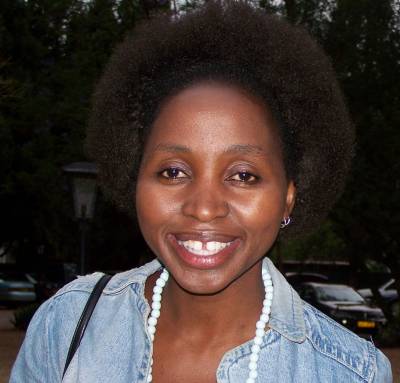
“I know you’ll do really well,” Mama said, opening her door. She got out, opened my door and smiled at me. I undid my buckle and gave her a half smile. She took hold of my hand and led the way round the back of the building. Some of the people on the benches looked at us. I looked back at them. I wanted to say, “Stare, stare like a bear.....like a sausage in the air!” the way Emma had taught me. But I said nothing.
Sabina Mutangadura lives with her husband and daughter in Harare where she works as a full time writer of children’s and young adult novels. Sabina is the author of Unfashionably in Love, a Nollywoods romance novel.
“I am enormously pleased to have made the shortlist. Really, enormously pleased. What an honour and a privilege!”
Rhino by Richard Street (South Africa)
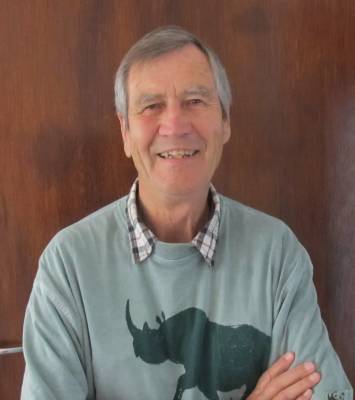
“What are we going to do now?” asked Makena anxiously. “They’re getting closer.” “We can’t stay here,” said Tafari. “We’ll have to hide. There’s plenty of thick bush and if we stay quiet they’ll never find us. They can’t see us yet. Better move quickly." Makena and Tafari bent low as they scampered away and into the safety of the bushes.
Richard Street is a retired junior high school teacher and avid nature lover. Like many, Richard is horrified by the increase in rhino poaching activities in South Africa which is home to most of the world's rhinos.
“I feel enormously proud and humbled that my story has been judged to be worthy of this honour – particularly as it touches on a theme which is precious to me – the preservation of Africa’s treasure of wildlife in all its magnificence and variety, especially the majestic rhino which is in danger of being wiped out within a generation.”
What's Going on at 179 Jabulani Street? by Karen Hurt (South Africa)
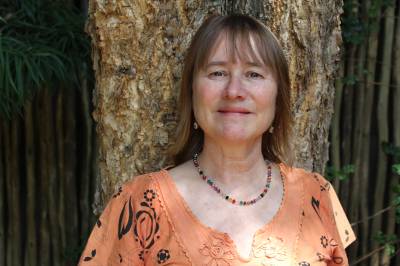
Sophie and Jama huddled together under the trap door for about half an hour. By the time The Colonel had gone into another room to look for the spare keys to the house, packed the crates into the van and driven away their legs were stiff and they were dusty and tired. Mr Chirindza opened the trap door and they climbed out.
Karen Hurt is an independent writer, editor, materials developer and writing workshop facilitator.
“For quite some time I had been thinking about rhino poaching and the smuggling of rhino horns. There are regular ads on the radio saying we all need to do something and frequent news stories on how many rhinos have been killed. I wondered, “how do children relate to these rhino stories and to being urged to do something?” I decided to explore this through my story."
2013 Shortlist for the Golden Baobab Prize for Rising Writers
The Little Secret by Fego Martins Ahia (Oghenefego Ahia),
When her Papa opened the door to check if she was still awake, she closed her eyes and covered her face with the free end of the bed linen. He disappeared without a sound, except for the soft noise of the wooden door. Kamila opened her eyes again and wondered what pigeons ate for dinner. "Do they eat white rice, like us?" she asked herself, a little too loudly, as if she were talking to someone else, someone she couldn't see in the dark.
Fego Martins Ahia is a first year student at Tufts University in Boston, Massachusetts (USA). He grew up surrounded by his father’s small library which ignited his imagination and encouraged his passion for writing.
“I feel deeply honoured and humbled to have made the shortlist of this year’s Golden Baobab Prizes. This is indeed a big dream come true as it was such an illuminating experience writing a children’s story that spoke to my roots in gentle whispers. Thank God for Golden Baobab!”
Pieces of Africa by Kanengo Rebecca Diallo (Tanzania)
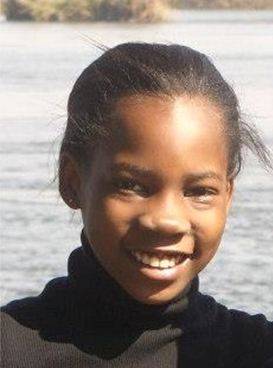
Oh no! I overslept. I quickly slid on my combats and ran out the door still in my bed-rumpled pajamas. There was a Jupon waiting outside the hall way to guide me to the dinning room but I just zipped past her and made my way around to the dining, popped myself down on a chair and dug in to the food.
Twelve year old Kanengo, who is the youngest person on the 2013 shortlist, lives in Dar es Salaam, Tanzania, with her parents and two siblings, and is a seventh grade student at the International School of Tanganyika (IST).
“When I received the news that I was on the shortlist, it was one of the happiest days of my life. The day before the shortlist was to come out was a very nervous one for me. I constantly bit on my nails and I could barely sleep that night. I finally got the news on Wednesday evening while doing my maths homework. So much relief and excitement washed over me that I threw my math book on the floor out of sheer joy! I was overjoyed!”






